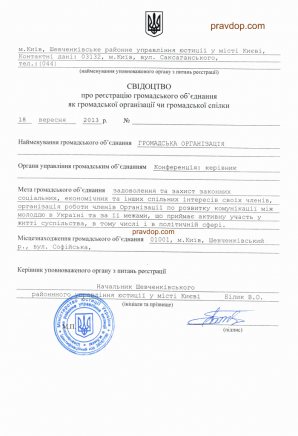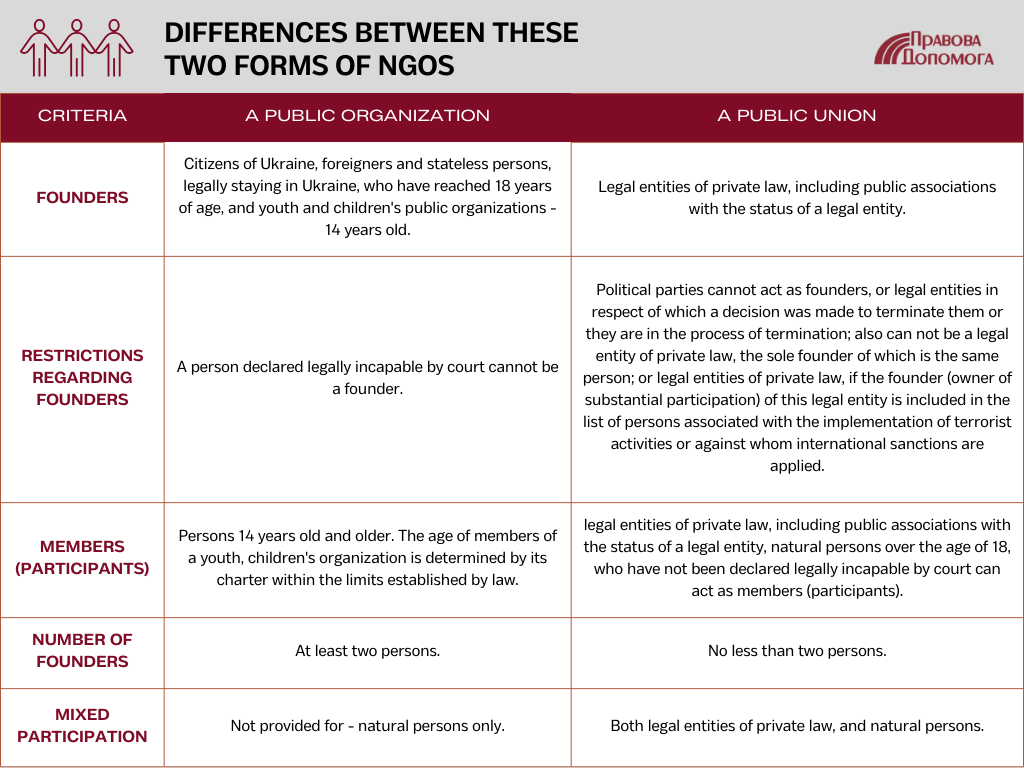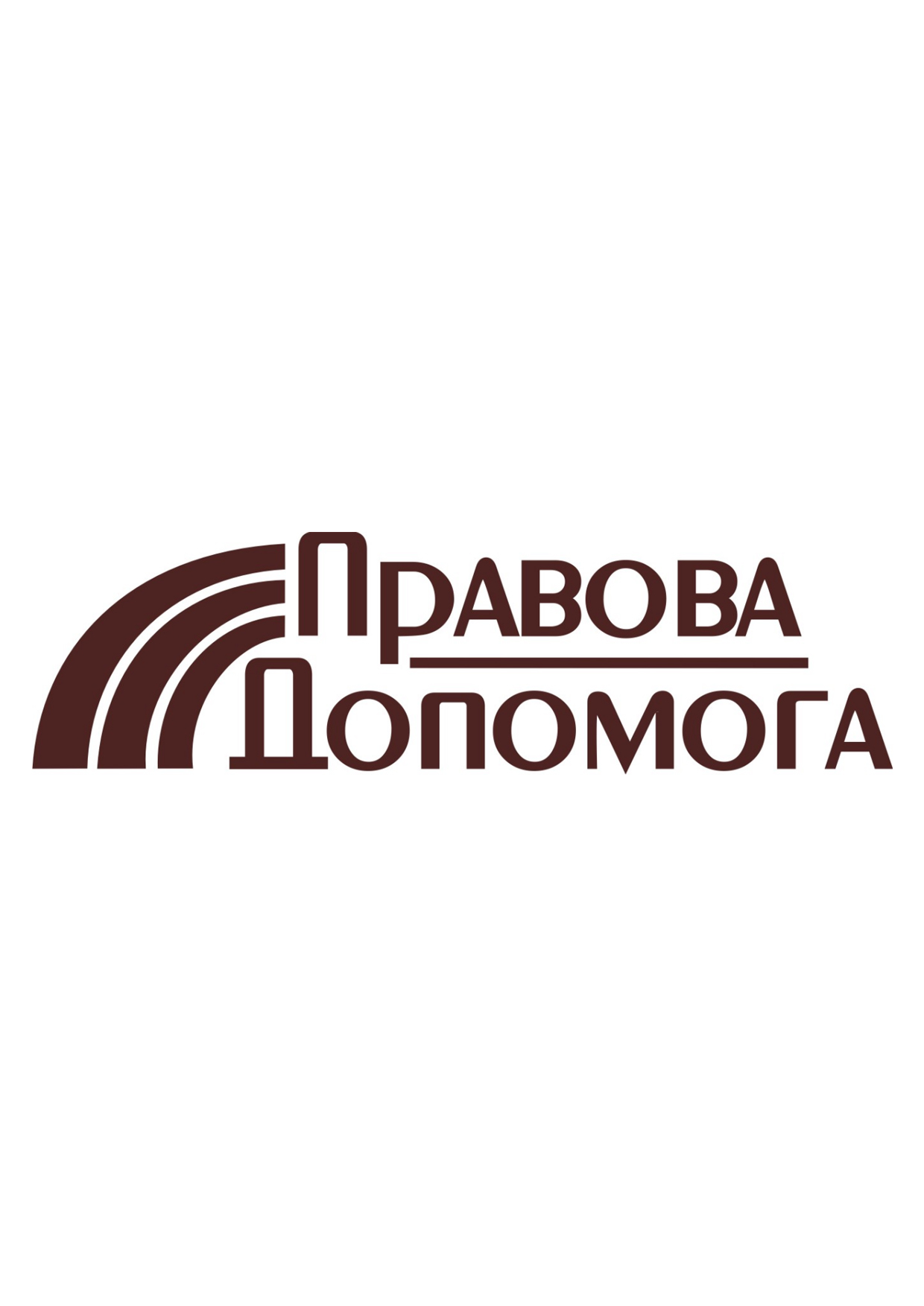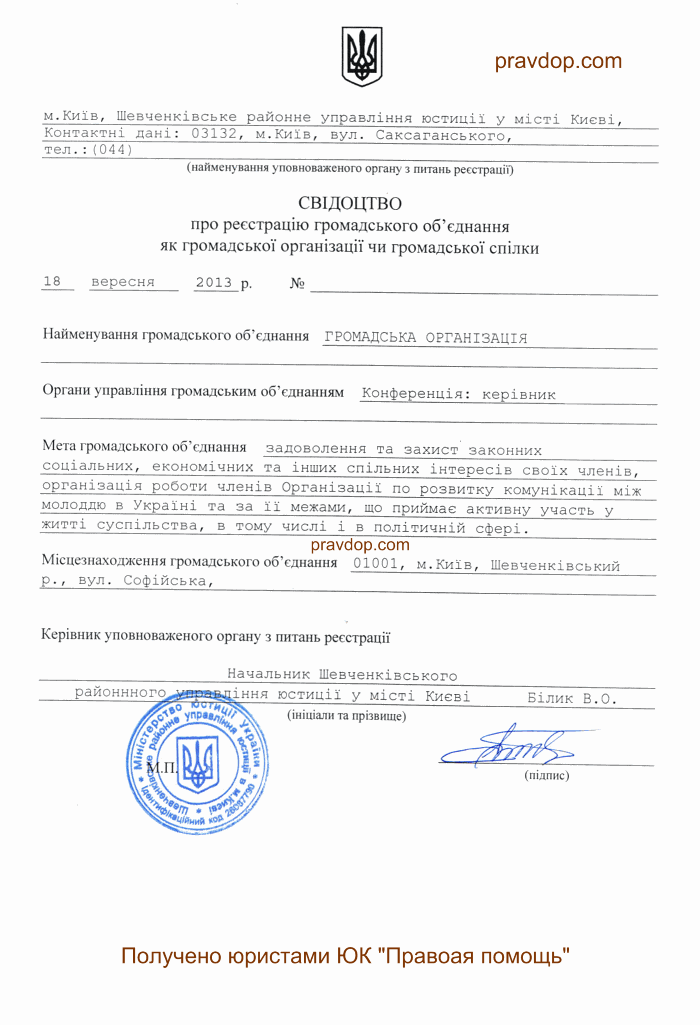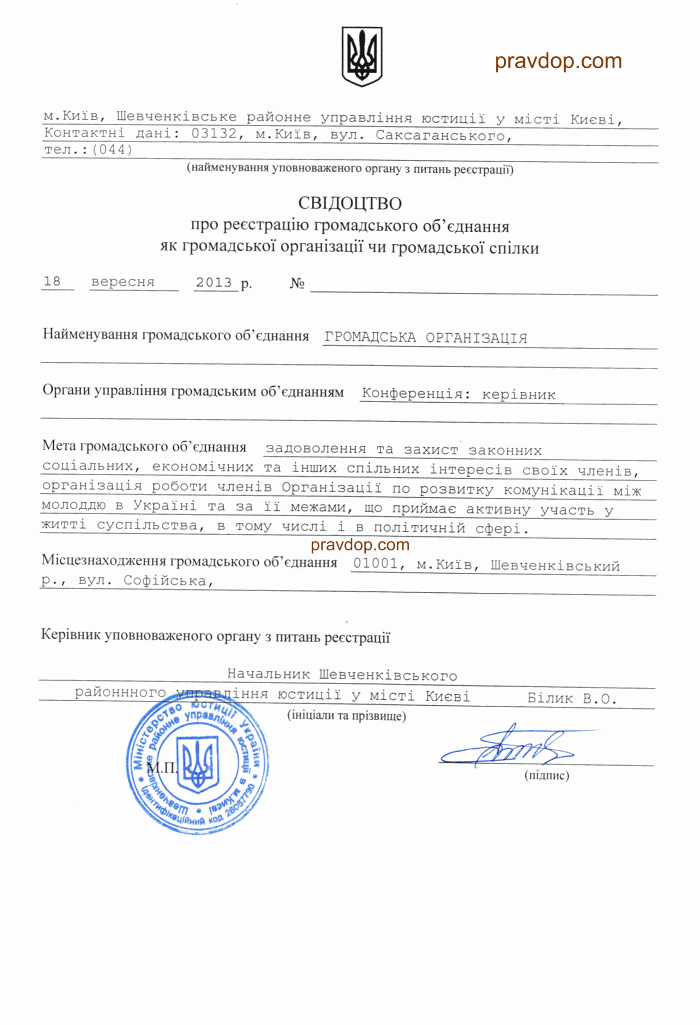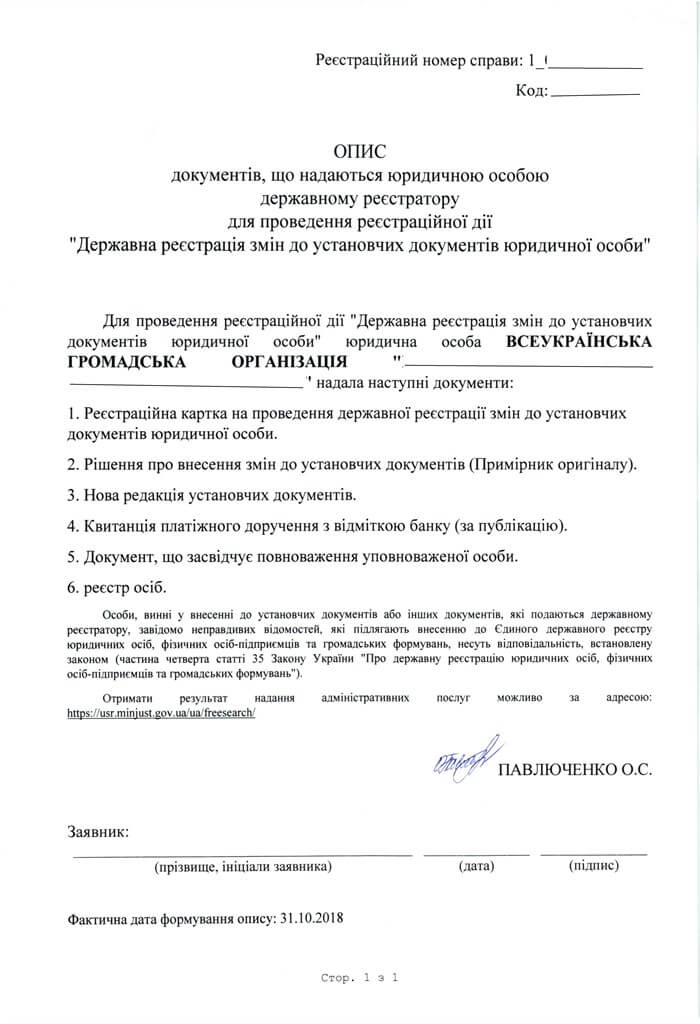Classification of forms and types of NGOs in Ukraine
Cost of services:
Reviews of our Clients
Public associations play a crucial role in defending citizens' rights and freedoms, as well as in fulfilling socially essential interests. These communities unite individuals with shared aims and objectives, collaborating to achieve their goals. This article explores the various types and forms of public associations, addresses their legal status, and delineates their differences.
With over 11 years of experience in the registration and support of public associations, we have successfully carried out a diverse array of projects, underscoring our expertise and professional methodology. Our team is not only equipped to provide valuable information but also to render practical aid in all facets of public associations' creation and operation.
We offer a tailored approach to each client, ensuring that the registration of public associations meets their specific needs and objectives. Regardless of the task's complexity, we are committed to providing comprehensive solutions—from the organization's registration and charter development to legal preparations for grant applications.
By choosing our services, you gain not only professional guidance at every step but also the opportunity to discover the most effective strategies for achieving your public service objectives.
Related article: Regulations on activities of Non-Profits in Ukraine in 2016
Changes in the legislation on non-governmental organizations
Recently, there have been significant changes in the regulation of the registration process and the functioning of non-governmental organizations of Ukraine:
- state registration of NGOs is now free. Payment is made only for amendments to the charter, structure and composition of governing bodies;
- there has been a decrease in the number of reasons for refusing to register NGOs, and the time for their registration was reduced (now 3 days);
- restrictions on the protection of the interests of its members only have been lifted;
- the right to act throughout Ukraine has been granted ;
- the "All-Ukrainian" status for NGOs has remained , but its confirmation is entirely voluntary;
- a complete list of the reasons for liquidation of NGOs has been fixed;
- the right to conduct business activities for the implementation of its statutory tasks has been fixed.
Related article: Comment on new act of Ukraine “on Non-Governmental Organizations”
It is also worth noting that there have been changes regarding the status of an NGO. From now on, the law does not contain a norm on the classification of status depending on the territory of activity of NGOs. NGOs can have “children's”, “youth” and “All-Ukrainian” statuses. The significance of the all-Ukrainian status has some differences.
Related article: All-Ukrainian status of non-governmental organization. Clarification of legal aspects
Forms of NGOs
We can distinguish two legal forms of NGOs : public organization and public union.
- A public organization - is an association whose founders and members (participants) are natural persons only.
- A public union - is an association whose founders are legal entities of private law only, and both legal entities and natural persons can be its members.
Related article: Our lawyers registered a non-profit All-Ukrainian ngo
In the table below, we will analyze all the differences between these two forms of NGOs.
| Criteria |
A Public Organization |
A Public Union |
|
Founders |
Citizens of Ukraine, foreigners and stateless persons, legally staying in Ukraine, who have reached 18 years of age, and youth and children's public organizations - 14 years old |
Legal entities of private law, including public associations with the status of a legal entity. |
|
Restrictions regarding founders |
a person declared legally incapable by court cannot be a founder |
Political parties cannot act as founders, or legal entities in respect of which a decision was made to terminate them or they are in the process of termination; also can not be a legal entity of private law, the sole founder of which is the same person; or legal entities of private law, if the founder (owner of substantial participation) of this legal entity is included in the list of persons associated with the implementation of terrorist activities or against whom international sanctions are applied. |
|
Members (participants) |
Persons 14 years old and older. The age of members of a youth, children's organization is determined by its charter within the limits established by law. |
legal entities of private law, including public associations with the status of a legal entity, natural persons over the age of 18, who have not been declared legally incapable by court can act as members (participants) |
|
|
|
|
|
|
|
|
Important! The legal form of an NGO is an obligatory component of its name.
Types of NGOs, depending on the status of a legal entity
NGOs can be set up with or without a legal entity status. The difference is that an NGO with the status of a legal entity acquires all its characteristic features. Such a public association acquires the right to:
- participation in civil law relations, acquisition of property and non-property rights;
- direct business activities;
Important! The legislation established that an NGO has the right to engage in entrepreneurial activity, if this is specified in its сharter. But in practice, NGO face the problem of obtaining a non-profit status. Tax inspectorates refuse to award this status, using the principle: provided for by constituent documents, entrepreneurial activity is profitable.
Previously, this problem was solved by forming a profitable company by an NGO association. Such practice is still carried out through the specified conflict in the legislation.
- reasons of the media to achieve its statutory goal;
- participation in the implementation of state regulatory policy;
- establishment of a company or enterprise that may be executors of a state order.
At the same time, NGOs with the status of a legal entity and legal entities created by it undertake to maintain accounting, financial and statistical reporting, be registered with the State Fiscal Service and pay obligatory payments to the budget in accordance with the law. Whereas an NGO without a legal entity status does not have such obligations.
Related article: We registered an ngo without a status of legal entity
If you have any questions regarding the organization of work, rights and obligations, or the registration of NGOs, our lawyers can provide you with their qualified advice.

